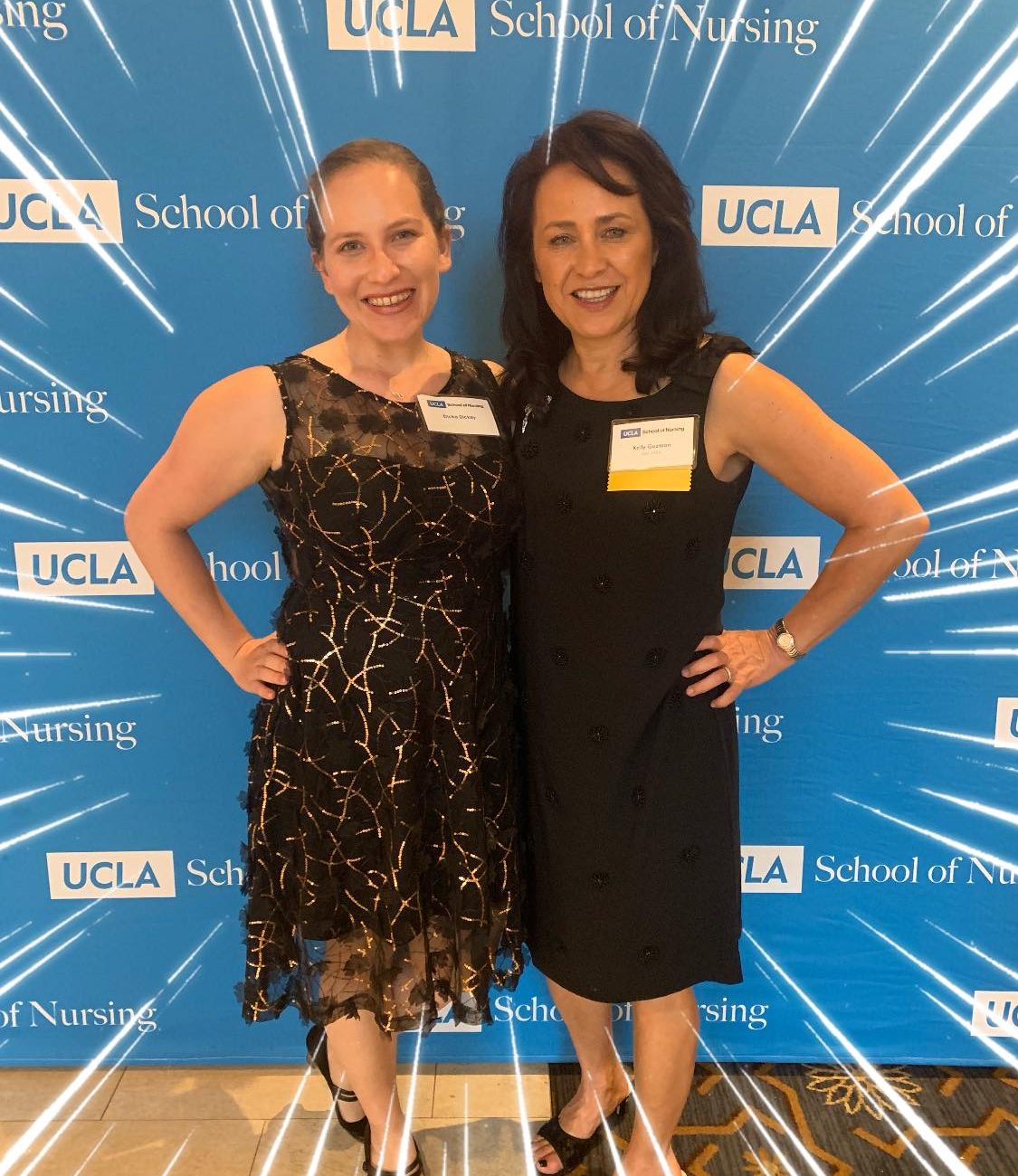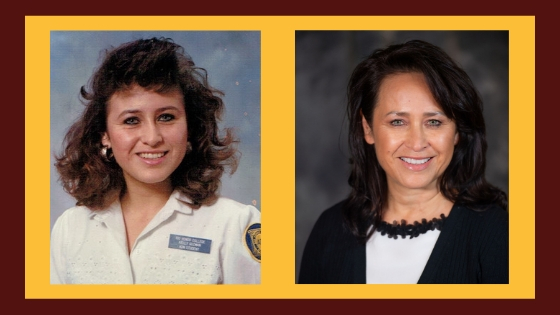What led you to become a nurse?
I grew up and attended nursing school in Whittier, California where I earned my 2-year Associates Degree in Nursing in four short years. I originally aspired to become a marine biologist however, that required six years of school which seemed incredibly daunting at the time. I thought that a 2-year program would be a nice bridge and allow me to work as a nurse while I finished school. (Ha!)
After I graduated and I was offered a job in a pediatric unit at a local hospital. It was the most difficult degree for me as I was learning a whole new language and at the same time learning how to navigate a new career. Talk about culture shock! I became the Pediatric/PICU supervisor juggling a combo of clinical bedside care and some administrative functions. This role inspired me to go back to school to earn my bachelor’s degree in nursing (Go Bruins!). During the program, I completed an internship in the Emergency Department (ED) and was immediately hooked on the excitement, so I transferred to work in the ED full-time.
The transfer to the ED was one of the most challenging experiences I’ve lived through. The hospital I was working at was in the heart of East Los Angeles and had a steady flow of sick patients. I may have been in the same hospital but it was like night and day, from the patient population to the cultural experience. In my first month, I lost about nine pounds and contemplated if I was cut out for the work in the ED.
How did you make move from bedside to administration and eventually to transition and activation planning?
While I was in the Emergency Department, we had a series of leadership transitions and I was the supervisor of the department allowing me the opportunity to “fill-in” as the Director while a more permanent candidate was identified. I had a very progressive and supportive Chief Nursing Officer (CNO) who told me I could go to school full-time and remain as the Director. The college course program I was in was Nursing Administration, which aligned with my core work and helped me decipher the path of what a Director’s role and responsibilities were. I worked for several years as a Director in the Emergency Department and my responsibilities grew to include management of clinical departments. I was offered the opportunity to transfer to UCLA as the Clinical Director over ambulatory and interventional services, and I had to take it. UCLA, at the time, was building the Reagan hospital and I was asked to lead the Transition and Activation Planning efforts. My work on that project led me to the realization that there was a gap and a need for full-time Transition and Activation Planning Consultants. You could say, the rest is history! I have been working in this field for the past 15 years.
If you could give advice to your younger self, what would it be?
Two things:
- Keep perspective and don’t get lost in the demands of the job. The first year of nursing is the hardest. The mannequins and simulations are great but do not prepare you for what you experience with live patients, families, and colleagues. I’m still traumatized by some of the procedures on live patients. The jump from beside to real patients is incredibly stressful and it’s hard to say no to an extra shift when the unit is “short”. Know that all of us were insecure, scared, tired, and have had really bad days. Find a way to do something positive for you, keep a journal and track your progress and reflect on what you have accomplished. Don’t make other people’s problems yours, and take care of you. It’s ok to say no to an extra shift or request to do more in order to take care of you.
- Never say never! I can give you so many examples of things I said I would never do or be responsible for because it was the responsibility of another department (marketing, finance, stats, etc.), only to find myself responsible for the job. Respect the work and contributions that everyone brings to the table and realize that your way isn’t always the “right” way. Keep an open mind and challenge yourself to learn new skills. They only make you more prepared to make that eventual jump to administration.


